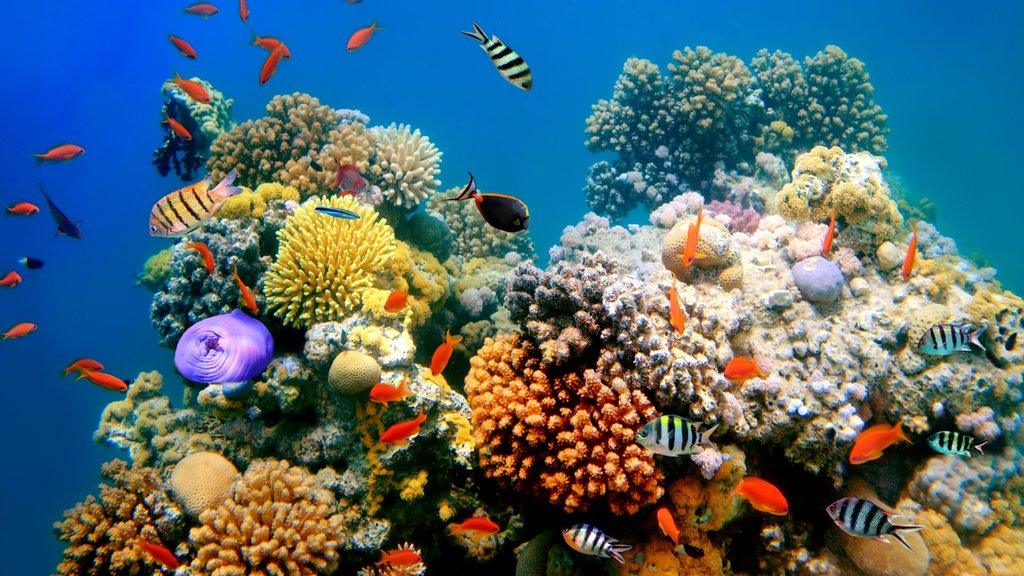Huge coral reef in Bangladesh to be protected under new rules
- Published
- comments
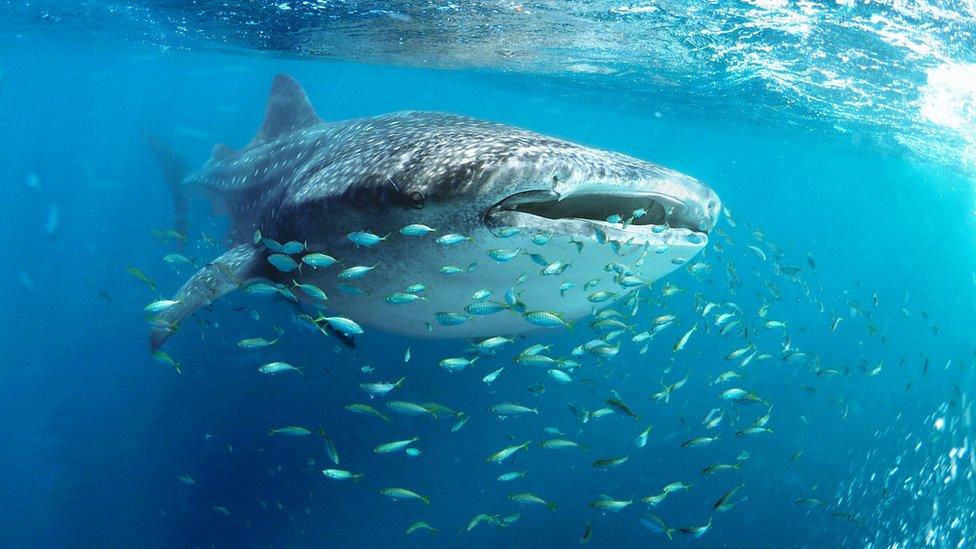
A whale shark - much like those found near the coral reefs of Saint Martin's Island.
Big steps are being taken in Bangladesh towards protecting the country's only coral reef.
They have declared the 1,743 square kilometers (672 square miles) surrounding Saint Martin's Island as a new Marine Protected Area (MPA).
Also known as 'Coconut Island', Saint Martin's Island is a popular tourist destination and home to around 7,000 residents who depend on seasonal tourism and fishing.
But that brings with it dangers to coral reefs, waste and light pollution which have taken a toll on sealife biodiversity around the island.
It is hoped the move will save these species habitats from too much fishing and coral bleaching.
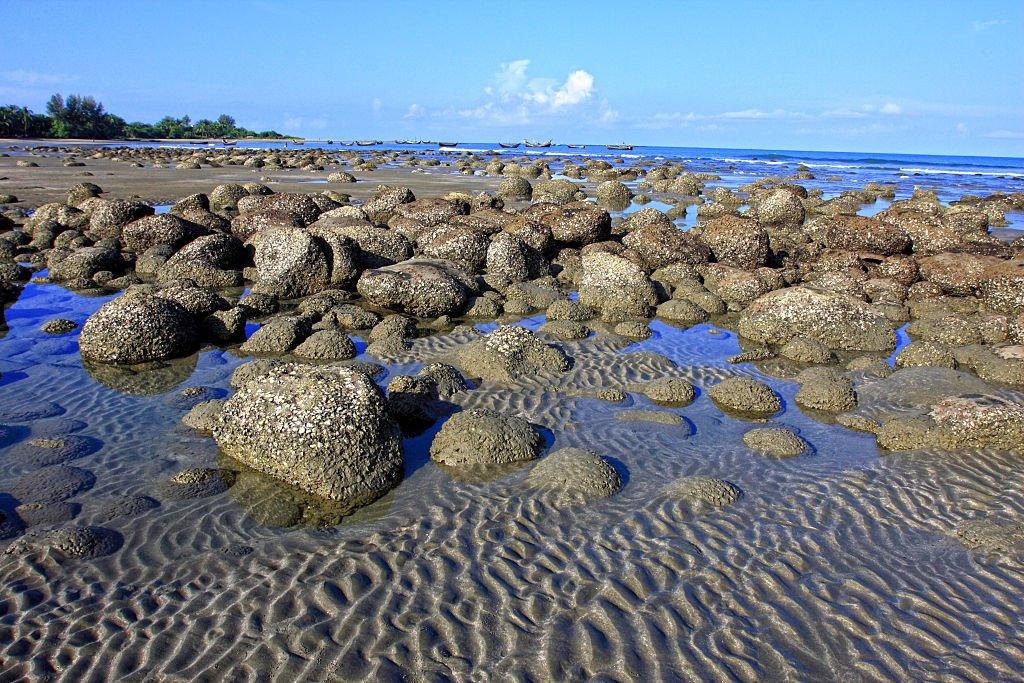
Saint Martin's Island, locally known as Narkel Jinjira, is the only coral island of Bangladesh
The coral reef is home to thousands of endangered marine species including whale sharks, Indo-Pacific humpback dolphins, and loggerhead turtles.
Not only that, but over 230 finfish species live alongside white-spotted whip rays and long-tailed butterfly rays.
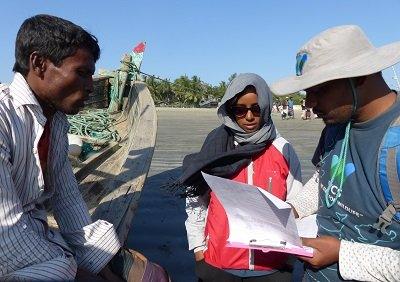
Experts work with local people who fish the waters
The island's beautiful scenery is popular with tourists and many residents rely on fishing for their income.
But both these factors have been harmful to the reef and marine life, despite efforts to protect them in the past.
This new MPA decision will limit the traffic of fishing boats in the threatened areas, and requires the industry to make changes to towards using more sustainable methods of catching fish.
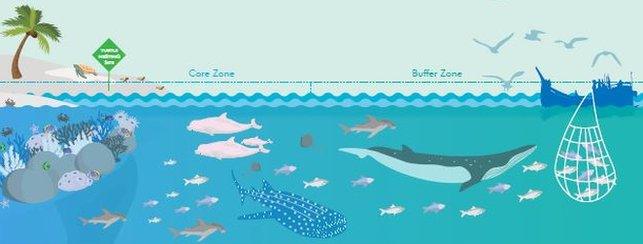
An infographic showing how the reef will be protected
"Protecting the waters around Saint Martin's Island is critical to sustain fisheries and conserve globally threatened marine wildlife," said Dr Zahangir Alom, from the Wildlife Conservation Society.
"It also provides an ideal opportunity to restore Bangladesh's only coral habitat".
- Published4 January 2022
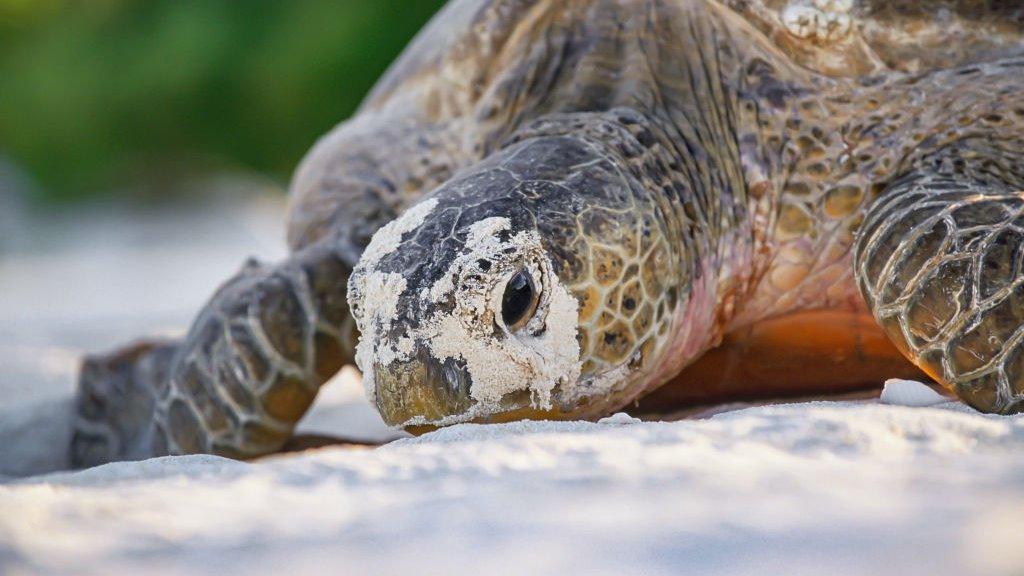
- Published9 April 2020
